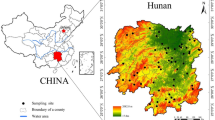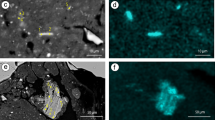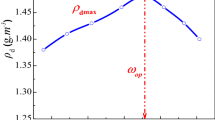Abstract
A SAMPLE of soil, scraped up by Mr. A. S. Helm from Scott Base, McMurdo Sound, has been analysed by this laboratory. The material contained many well-rounded blue-grey stones of basaltic and arenaceous origin, the majority being basaltic. It was apparently derived from the basaltic rocks which outcrop in the area and mixed with material from sedimentary sources in the vicinity. No humus was apparent to the eye but the sample contained a small piece of moss as well as some bacteria (J. D. Stout, personal communication) and is thus justifiably regarded as a soil. Of the material collected, 98.6 per cent was less than 25 mm. in diameter and 64 per cent less than 2 mm. Only 2.6 per cent was less than 0.066 mm. and less than 1 per cent of clay was present.
This is a preview of subscription content, access via your institution
Access options
Subscribe to this journal
Receive 51 print issues and online access
$199.00 per year
only $3.90 per issue
Buy this article
- Purchase on Springer Link
- Instant access to full article PDF
Prices may be subject to local taxes which are calculated during checkout
Similar content being viewed by others
References
Barshad, I., Soil Sci., 72, 361 (1951).
Author information
Authors and Affiliations
Rights and permissions
About this article
Cite this article
BLAKEMORE, L., SWINDALE, L. Chemistry and Clay Mineralogy of a Soil Sample from Antarctica. Nature 182, 47–48 (1958). https://doi.org/10.1038/182047b0
Issue Date:
DOI: https://doi.org/10.1038/182047b0
This article is cited by
-
Chemical weathering in Antarctica: an example of igneous rock particles in Big Lachman Lake sediments, James Ross Island
Environmental Earth Sciences (2020)
-
Clay minerals in Arctic Kongsfjorden surface sediments and their implications on provenance and paleoenvironmental change
Acta Oceanologica Sinica (2018)
-
Clay mineral composition in shallow water sediment samples near the Antarctic Peninsula and in deep-sea core samples from the pacific and the Indian-Antarctic Basins
Journal of the Oceanographical Society of Japan (1980)
-
Cavernous Weathering in the Taylor Dry Valley, Victoria Land, Antarctica
Nature (1967)
-
Yeasts in Antarctic soils
Antonie van Leeuwenhoek (1966)
Comments
By submitting a comment you agree to abide by our Terms and Community Guidelines. If you find something abusive or that does not comply with our terms or guidelines please flag it as inappropriate.



